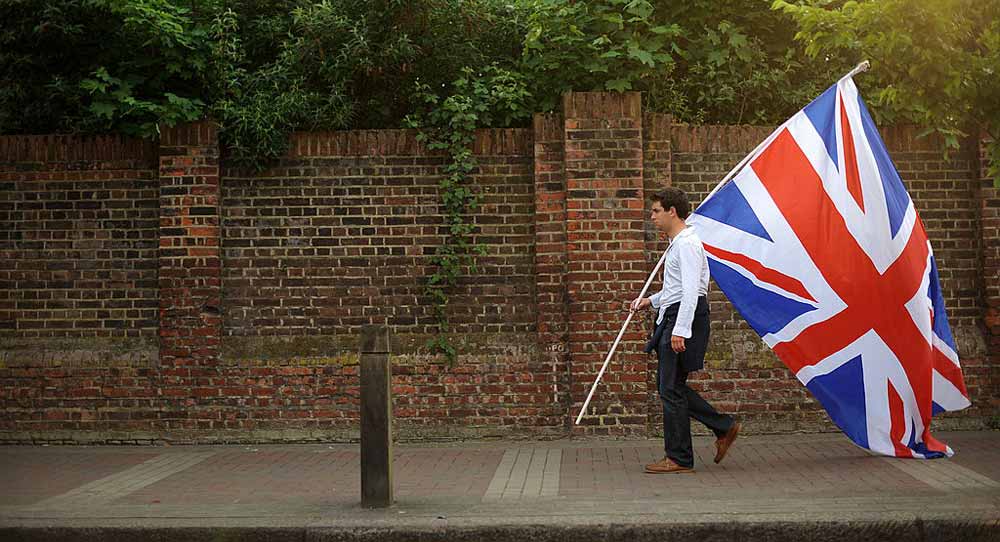On June 6, 1944, after a build-up of over 2 million soldiers in the UK in preparation for a German invasion, 150,000 troops from the United States, Canada, and Britain landed on the northern French coast of Normandy. Backed by Australian, Belgian, Czechoslovak, Dutch, French, Greek, New Zealand, Norwegian, Polish, and Rhodesian naval, air, and ground support, this operation was the beginning of the liberation of Europe from Nazism.
It was also the beginning of a special transatlantic relationship anchored not only in NATO, which was founded five years later, but also in three other multilateral institutions: the European Union, the World Bank, and the International Monetary Fund. These organizations, especially NATO and the EU, galvanized the West at a time when an Iron Curtain had divided Europe into two ideological camps.
Over seven decades later, the idealism and the perception of the West, protected by the United States, is being undermined. With a highly unpredictable president ensconced in the White House and Britain on an irreversible course to leave the EU, the West is losing its bearings. What is happening in the United States under President Donald Trump and in Britain under Prime Minister Theresa May, whose Conservative Party is struggling to maintain its lead ahead of the June 8 general election, has profound implications for the West.
Trump, for his part, is challenging the post-1945 consensus on free trade and even questioning America’s security commitment to its European allies. May, meanwhile, believes Britain can turn its back on Europe (although she repeatedly says it isn’t doing that) while forging separate trade deals with other countries. Were it as easy as that.
May, who by calling an early general election hoped to strengthen her hand in the Brexit negotiations with the EU, has ceded immense ground to her opponent and leader of the Labour Party, Jeremy Corbyn. She moved to the Right of her party to attract voters and zigzagged over her economic and social policies. After an interview with the Financial Times on June 3, she seems completely in self-denial over security, Britain future strategic place in Europe, and how the UK will cope once it leaves the EU.
Corbyn, who is a zealous leftist, has kept his campaign focused on poverty, inequality, and the reintroduction of state ownership. Forget about Britain being open to the world. It is a dismal choice for British voters. The only middle ground is represented by the small Liberal Democrats. Even then, the party has lacked a convincing leadership on social and foreign policies.
This is why the British election is bad news for the West. The West was built on an openness to trade, the protection of democratic institutions and their values, and market economies. These issues do not figure at all in the British election campaign.
Whatever the outcome of Britain’s election, the country’s future path will deal a double blow to the West. The UK’s traditional liberalism, its diplomatic experience, and its Anglo-Saxon economic culture will be sorely missed by several European countries. Yet what is astonishing to see is the impact the Brexit vote is already having on Britain’s own political culture, which is infected by populism, while in parts of Britain whose economies have been decimated, sections of the population have been left behind.
Britain’s diplomatic service is led by a foreign secretary who lacks all sense of gravity about the road his country is headed down. The political discourse is dominated by a blame game, shallowness, and introverted debates. Furthermore, there has been a gradual erosion of the special relationship between London and Washington, two partners that were once important stabilizing forces for the West.
But at a time when May needs the United States more than ever before, Trump’s extraordinarily insensitive tweets about the terrorist attack in London on June 3, in which he criticized and misquoted the reaction by the city’s Mayor Sadiq Khan to the attacks, has exacerbated relations between London and Washington. Britain’s allies are fast diminishing.
That is no cause for schadenfreude. On the contrary. An EU without Britain (and vice versa) and the unpredictable leadership in Washington leave the West weaker. After all, the EU would not have been established and would not have thrived without the active support of the United States. The West is losing the ballast that kept it strong.
This is dangerous for Europe, for Britain, and for the United States. This can only benefit authoritarian leaders, such as Russian President Vladimir Putin and the Communist leadership in China, who have viewed the West as a political and economic alliance that set standards for market economies, trade rules, and climate change.
Yet the West’s decline should not be inevitable. The West has been the beacon and inspiration for individuals and movements seeking the freedom to speak, to have independent judges and accountable officials, and, above all, to hold free elections.
These are aspirations that Europeans and Americans can continue to support despite the malaise from which the West now suffers. Moaning about the West’s demise could become a self-fulfilling prophecy unless leaders on both sides of the Atlantic recognize what the alternative holds. Brexit is surely a warning.





-1.png)


-1.png)